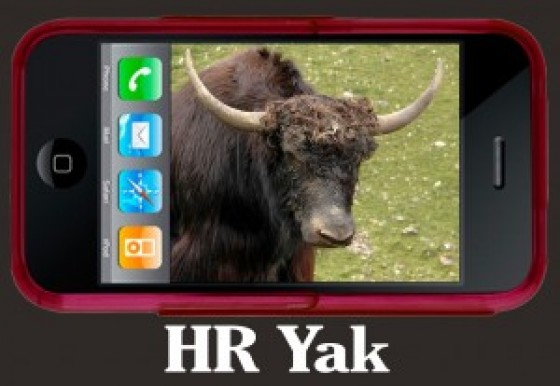 Last week two dozen of my HR leaders met to engage in a discussion potentially fraught with emotion and strong opinions. The topic was: Sexual Harassment: What’s Next? Interestingly, only one guy showed up – was that a coincidence! Maybe, maybe not! It was interesting to hear at the outset how much fear and anxiety there was in the room- from all sides of the issues, perhaps reflecting the polarized world we now live in, a place of heightened emotion and inflammatory dialogue which has made us all feel less safe to have the conversations we need to have.
Last week two dozen of my HR leaders met to engage in a discussion potentially fraught with emotion and strong opinions. The topic was: Sexual Harassment: What’s Next? Interestingly, only one guy showed up – was that a coincidence! Maybe, maybe not! It was interesting to hear at the outset how much fear and anxiety there was in the room- from all sides of the issues, perhaps reflecting the polarized world we now live in, a place of heightened emotion and inflammatory dialogue which has made us all feel less safe to have the conversations we need to have.
So what were some of my takeaways from our conversation? I had a multitude of ahaas, but let’s focus on two areas:
- IT IS COMPLICATED! The word sexual harassment is thrown around quite loosely nowadays, and it is when we enter the “gray” area it becomes confusing and hard to know exactly what judgments to make and what actions to take. Sexual harassment is clearly defined in our law. But there are actions that may not be illegal but nevertheless are inappropriate. Are we talking about a true compliment? Does a behavior pass the sniff test? Is there a pattern? There are those situations when someone did not technically/legally cross the line, but everybody knows that something is not quite right – perhaps the boss is entering the “wife territory” by having an administrative assistant take on “wifely” tasks?Is your company taking a stance and establishing clear policy and describing behaviorally what your cultural/values expectations are? Fact: our company leaders are free to go way beyond what is provided by law. Are they in your company? Why, why not? Are HR executives leading the way by facilitating the discussions that are needed in the C-suite: are you clear on what messaging your C-Suite leadership wants to put out there with your employees? For example, does a culture which values and encourages risk-taking and making mistakes as an opportunity to fail forward align with a more lenient response to “inappropriate behavior” than in other companies that have a zero-tolerance policy? Terminating someone makes a BIG statement!
- IS TRAINING THE ANSWER? The EEOC reportedly maintains that harassment training has not been effective in the past – participants tend to fall asleep or get the giggles. Something around how we do training is not working and unfortunately not much seems to be changing (nevertheless, providing training is an important legal issue for companies needing to demonstrate they are making good faith efforts). There seems to be general consensus that training may trigger awareness in the moment, but there is little sustainable change. Some ideas floating up in the course of our dialogue revolved around shifting from “training” to “engaging in conversation,” – it is in the engagement that learning takes place – customizing experiences to different levels in the organization. For example it may be necessary to make the business case along with other experiences in order to get the ear of the C-suite. Leaders in general need to understand that a higher level of accountability is expected from them than employees at large– after all, they have been placed in a position of trust and need to be role models. There was a sense that an effective experience for employees may be more around sensitivity training than harassment training – being respectful and sensitive, understanding that personal space is different for different people and more. And, there needs to be more of a focus on providing better tools to have difficult conversations, perhaps helping all employees languaging and instead of approaching grey-area issues by jumping to judging, telling and confronting, actually project caring, curiosity and becoming better at coaching each other: asking incisive questions and helping potential offenders come to their own answers. How do you think your comment landed? How could you have said it differently? How did you think she would respond to that comment? What was your motivation when you…? How do you think your own perception of yourself coincides with that of others? Can I share an observation? Or perhaps, a more direct approach: When you go to Vegas you cannot engage in sexual relations with other employees. Period!!!
My most important takeaway is that in order to move forward and provide new and fresh opportunities for learning, we need to find a better way to actually engage with each other. We need to provide tools to facilitate more productive conversation and shift away from traditional answers and training methods, better describe differences between – and discuss – what is illegal and what is inappropriate, and have our leaders take a stance by clearly establishing policy and cultural/values expectations.
Here are my favorite quotes from this session:
- Drop traditional training. In today’s environment we need quizzlets and snackable learning.
- Invest in investigative teams.
- Insisting that HR deal with complaints of sexual harassment of their executives, is asking them to enter politically suicidal territory.
- Who in the world came up with the 4-second crotch test? Staring at someones crotch more than 4 seconds is a problem. Really????
- I worry about women. Are they in fact becoming more isolated?
- General disrespect for women is not illegal.
- There is a lot of fear. On all sides.
- Don’t expect victims to do all the heavy lifting. Empower those around them to have the tough conversations. Help your employees become comfortable with being uncomfortable,
- Everybody has a different gauge. Help employees explore gauges of others.
- Older folks have to re-learn what is/is not appropriate in today’s environment and heightened sensitivity of millennials and others.
- Could a legislative solution create more disruption than calm?
- The rest of the world does not understand our issues. How do US global companies navigate different cultural norms in countries such as Italy where we perceive some accepted behaviors as perhaps being harassed in a nice, chivalrous, machismo way.




